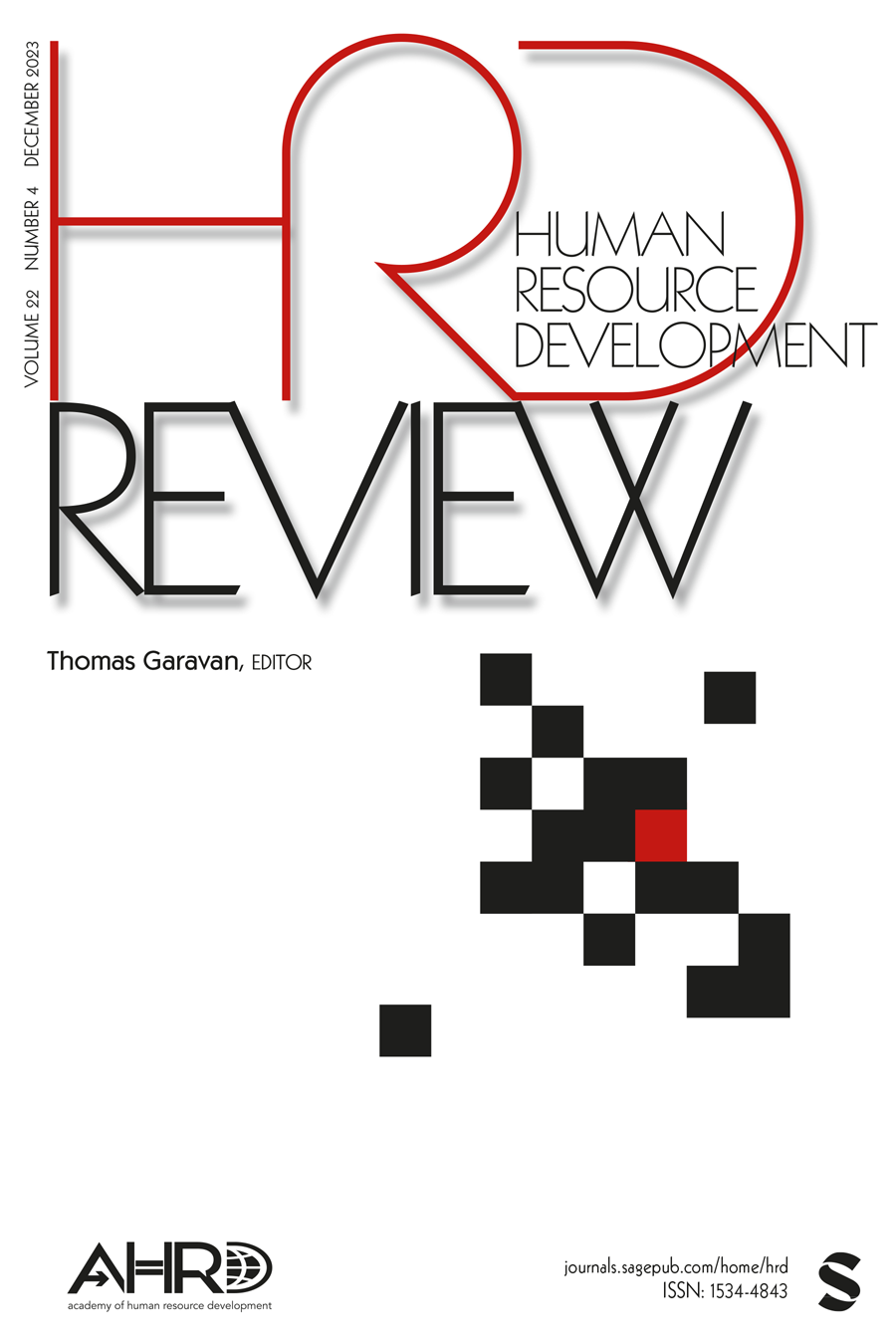Special Issue on Qualitive Methods for Theory Building in HRD: Why Now?
IF 4.6
3区 管理学
Q1 MANAGEMENT
引用次数: 1
Abstract
Over time, qualitative methods have changed, sometimes rapidly, other times slowly. Qualitative research had to edge its way into academia and is still earning its place. Initially, ethnography was prioritized because in an era of quantitative inquiry, anthropology was shamelessly qualitative and led by describing ethnographic methods from the late 19th century. Over the decades, we expanded from ethnography to grounded theory— and both methods have since matured into several “styles” or types. Many methods have emerged and been popularized, for instance, phenomenology, focus groups, semi-structured interviews, digital methods, and now, mixed and multiple methods that incorporate some form of qualitative inquiry. We have seen disciplinary support for conversational analysis, discourse analysis, and narrative analysis. Some methods have held their own perspective, but in others, shifts have occurred. Participant observation is now incorporating photovoice and video data. We have moved from using perspectives of strangers that interpret the experiences of others from the outside, to centering on the use of self as data, as in autoethnography. As a result, we use participants as equal partners in research, as in community-based participatory research.人力资源开发理论建设的定性方法特刊:为什么是现在?
随着时间的推移,定性方法发生了变化,有时迅速,有时缓慢。定性研究不得不慢慢进入学术界,并仍在争取自己的地位。最初,民族志被优先考虑,因为在定量研究的时代,人类学无耻地定性,并以描述19世纪后期的民族志方法为主导。在过去的几十年里,我们从民族志扩展到扎根理论——两种方法都已经成熟为几种“风格”或类型。许多方法已经出现并得到推广,例如,现象学,焦点小组,半结构化访谈,数字方法,以及现在的混合和多种方法,其中包括某种形式的定性调查。我们已经看到了对会话分析、话语分析和叙事分析的学科支持。有些方法保持了自己的观点,但在其他方法中,发生了变化。参与性观察现在结合了照片、声音和视频数据。我们已经从使用陌生人的视角从外部解释他人的经历,转向集中使用自我作为数据,就像在自我民族志中一样。因此,我们将参与者视为研究中的平等伙伴,就像在以社区为基础的参与性研究中一样。
本文章由计算机程序翻译,如有差异,请以英文原文为准。
求助全文
约1分钟内获得全文
求助全文
来源期刊

Human Resource Development Review
MANAGEMENT-
CiteScore
9.60
自引率
17.20%
发文量
35
期刊介绍:
As described elsewhere, Human Resource Development Review is a theory development journal for scholars of human resource development and related disciplines. Human Resource Development Review publishes articles that make theoretical contributions on theory development, foundations of HRD, theory building methods, and integrative reviews of the relevant literature. Papers whose central focus is empirical findings, including empirical method and design are not considered for publication in Human Resource Development Review. This journal encourages submissions that provide new theoretical insights to advance our understanding of human resource development and related disciplines. Such papers may include syntheses of existing bodies of theory, new substantive theories, exploratory conceptual models, taxonomies and typology developed as foundations for theory, treatises in formal theory construction, papers on the history of theory, critique of theory that includes alternative research propositions, metatheory, and integrative literature reviews with strong theoretical implications. Papers addressing foundations of HRD might address philosophies of HRD, historical foundations, definitions of the field, conceptual organization of the field, and ethical foundations. Human Resource Development Review takes a multi-paradigm view of theory building so submissions from different paradigms are encouraged.
 求助内容:
求助内容: 应助结果提醒方式:
应助结果提醒方式:


